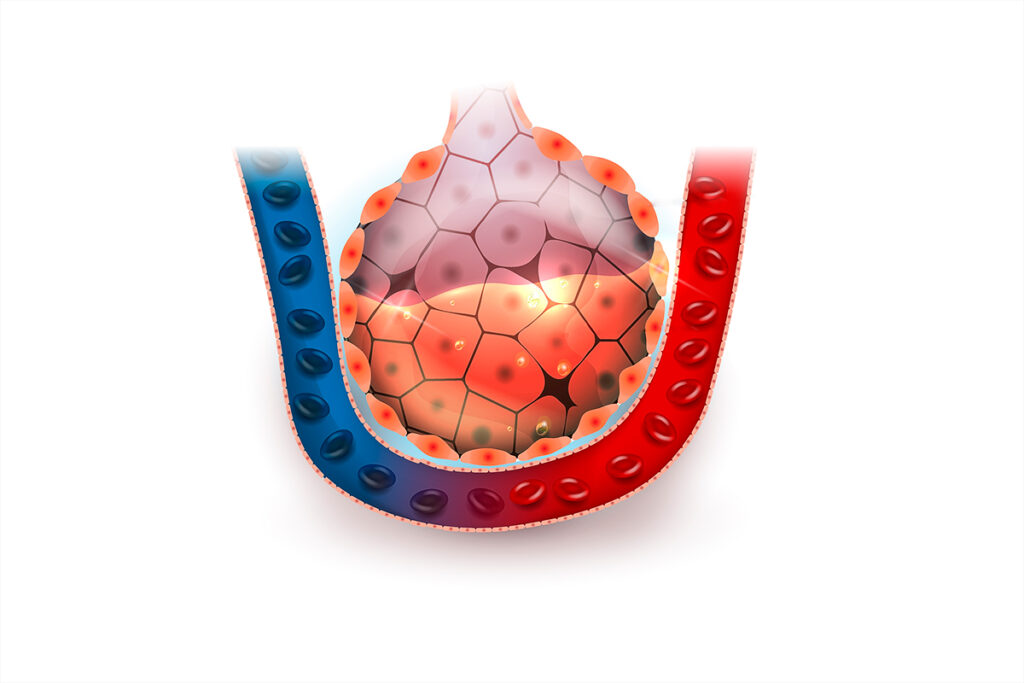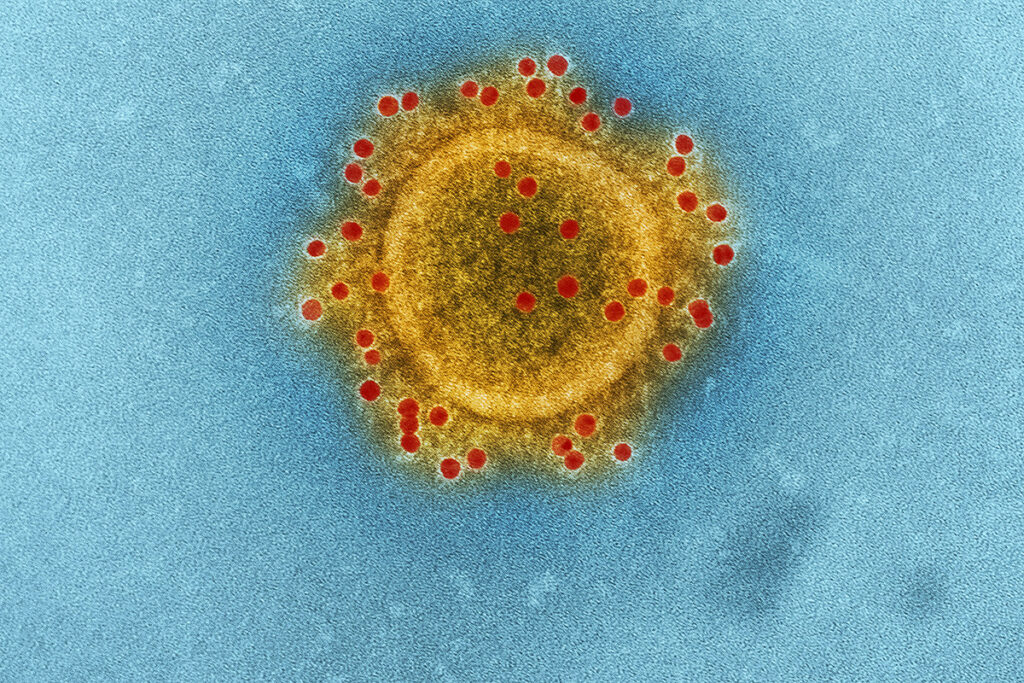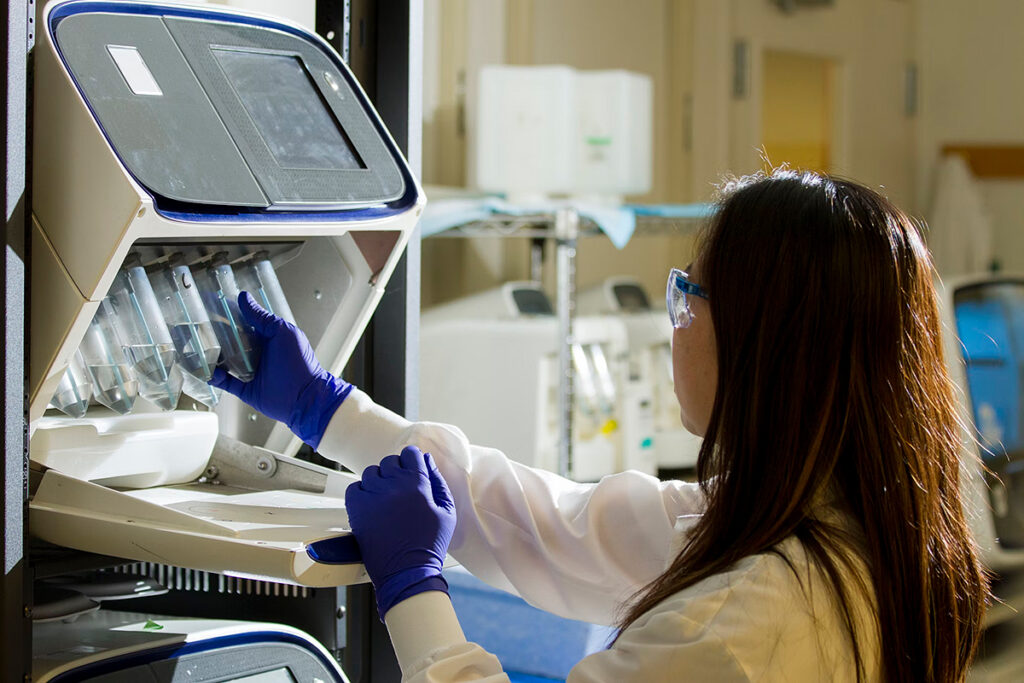Interferon-beta (IFN-β) is one of 3 types of interferons that activate the body’s antiviral defense. The SARS-CoV-2 coronavirus prevents the body from producing IFN-β molecules, so the antiviral defense is delayed.
However, experiments show that a sufficient number of interferon-beta molecules suppresses the multiplication of SARS-CoV-2. Therefore, scientists consider interferon-beta therapy to replace a weakened immune system in COVID-19.
A group of scientists from the United States and Peru studied the existing research on the use of IFN-β in coronavirus infection. Their work resulted in a systematic review that included:
- randomized controlled trials;
- experimental research;
- medical history.
Systematic Review Results
Interferon beta has a positive effect on the treatment of adults (over 18 years old) from the SARS-CoV-2 coronavirus:
- reduces 28-day mortality of patients and improves their survival;
- accelerates the elimination of the virus from the body by 14 days;
- reduces viral load time;
- limits inflammation;
- reduces the need for intensive care and mechanical ventilation.
Minor side effects of IFN-β were observed in the treatment of coronavirus infection: neuropsychiatric symptoms and hypersensitivity.
Eight of the 66 studies found in medical research databases met the criteria for systematic review. Studies with a high risk of bias were not included in the review.
Results Included In The Systematic Review
Iranian scientists from the University of Tehran conducted two open randomized clinical trials. Experts have evaluated the efficacy and safety of interferon-beta-1a in treating adults with COVID-19.
The first study involved 81 patients (42 in the IFN-β group, 39 in the control group). The second study included 66 patients (33 people each in the IFN-β group and the control group). In both studies, interferon-beta was used in addition to the national coronavirus treatment protocol. IFN-β was used by injection.
Research results: interferon beta increases the frequency of discharge by 14 days, reduces 28-day mortality. The best result was obtained if patients received IFN-β injections at an early stage of the disease (in the first 5 days from the onset of symptoms).
Another group of Iranian scientists, also from the University of Tehran, conducted an uncontrolled study of interferon beta-1a to treat COVID-19. The study involved 20 patients (mean age 58 years). All participants received IFN-β subcutaneously for 10 days in addition to the national coronavirus treatment protocol.
Study result: the average hospitalization time was 17 days, there were no deaths over 14 days, and there were no severe adverse reactions to injections.
Chinese scientists from several universities have conducted a randomized study of combination therapy in people hospitalized with COVID-19. Patients received treatment with interferon-beta-1b, lopinavir-ritonavir, and ribavirin. The study involved 127 people: 86 in the combination treatment group, 41 in the control group. The average age is 52 years.
Study result: in the combined treatment group, the median time to a negative nasal smear result was 2 times less than in the control group (7 days versus 15). Patients in the IFN-β group, on average, required less hospital stay (9 days versus 14). The concentration of the pro-inflammatory protein IL-6 in the combined treatment group was significantly lower than in the control group on days 2, 4, and 8 of hospitalization. No patient died during the study. The best results were in patients treated with interferon-beta at an early stage of the disease.
Doctors at the Royal Hospital of Oman compared the efficacy of co-therapy for COVID-19 with inhaled interferon-beta-1b and favipiravir (45 people) versus hydroxychloroquine (44 people) among patients hospitalized with moderate to severe pneumonia.
Scientists found no significant clinical differences in both groups.
Turkish doctors from Ankara hospital reported a patient treating multiple sclerosis with interferon beta for the previous 2 years but was infected with the SARS-CoV-2 coronavirus. The patient was admitted to the hospital one week after discovering COVID-19. In addition to IFN-β injections, the patient received hydroxychloroquine, azithromycin, and sodium enoxaparin. Therapy lasted 5 days, and on day 7, the patient was discharged.
Scientists associate the patient’s rapid recovery with injections of interferon beta.
British scientists from the University of Oxford conducted a randomized, double-blind, controlled study of the safety and efficacy of inhaled interferon beta-1a for the treatment of COVID-19. The study involved 101 adult patients with coronavirus infection (50 people in the IFN-β group, 51 in the control group).
Study result: the chance of clinical improvement in the interferon-beta group was 2.3 times higher than in the control group. Also, in the IFN-β group, respiratory failure was observed twice less often. There were no deaths among patients receiving interferon beta. There were 3 deaths in the control group.
Iranian scientists from the University of Health Sciences conducted a meta-analysis and systematic review of studies on the effectiveness of interferon-beta against COVID-19. The authors compared standard treatment (hydroxychloroquine and lopinavir-ritonavir) and experimental treatment (standard treatment + interferon-beta) for severe coronavirus infection. Three studies were included in the meta-analysis, and five studies were included in the systematic review. A total of 314 patient data were used.
Results: The mean time to the hospitalization in the interferon group was significantly lower than in the standard treatment group (7 days versus 17).
Conclusions
Interferon beta is most effective with early initiation of therapy.
In patients receiving IFN-β, the results were: more rapid clinical improvement observation, shortening the duration of hospitalization, lowering the mortality rate, and reducing the chances for intensive care and mechanical ventilation.
Interferon-beta increases patients’ chances of recovery by the 14th day of hospitalization.
Useful article, necessary information? Share it!
Someone will also find it useful and necessary:
Reference
Effects of Interferon Beta in COVID-19 adult patients: Systematic Review



